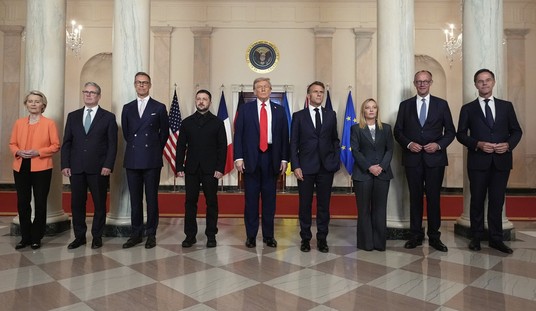What happens when a consulate refuses to close after it loses its diplomatic status? Likely nothing good, but China’s Houston consul apparently wants to find out. Cai Wei told Politico last night that the State Department order to close the consulate violated international protocol, and he has no intention of closing the facility:
In a wide-ranging interview with POLITICO, Cai Wei, the Chinese Consul General in Houston, said China is protesting the closure order and his office will remain open “until further notice.”
“Today we are still operating normally, so we will see what will happen tomorrow,” he said, declining to elaborate further.
Cai said Beijing has asked the U.S. to rescind its Tuesday order to close the consulate, which China argues runs afoul of international agreements governing diplomatic relations.
“We think that the demand from the U.S. side … is not according to the Vienna convention on consular affairs and also is not according to international practice or [diplomatic] norms, and it violates the China-U.S. consular treaty,” Cai said. “We prepared for the worst scenario but we’ve also launched a strong protest … so we urge the U.S. to abandon and revoke that wrong decision.”
They have a funny way of making this argument. At the same time Cai told Politico that the order to close the consulate was somehow illegitimate, Beijing did the same thing to the US consulate in Chengdu. China made it clear that it was a retaliatory measure, albeit entirely expected:
“The measure taken by China is a legitimate and necessary response to the unjustified act by the United States,” China’s Foreign Ministry said in a statement.
“The current situation in Chinese-U.S. relations is not what China desires to see. The United States is responsible for all this,” the ministry said. “We once again urge the United States to immediately retract its wrong decision and create necessary conditions for bringing the bilateral relationship back on track.”
Chengdu, in Sichuan Province, is one of the biggest cities in western China. The U.S. consulate — opened in 1983 — covers the provinces of Sichuan, Yunnan and Guizhou, as well as the Tibet Autonomous Region.
What do people assume will happen if the US refuses to leave the Chengdu consulate? It won’t be pleasant once American personnel lose their diplomatic privilege. It might not be pleasant for China’s personnel in Houston either, but at the very least the property will revert back to the sovereignty of the US whether China’s consular officials recognize it or not:
But if China does try to keep its consulate open, the experts said the U.S. could revoke visas for Cai and his staff, allowing federal agents to arrest and potentially deport them. It was unclear whether the closure demand included expulsion of Cai and his staff, but he told POLITICO that he had no immediate plans to leave the country.
Somehow, it seems doubtful that Cai’s plans matter much at the moment. Host countries have the authority to revoke diplomatic status, for both personnel and facilities, and they aren’t required to give a lot of notice, either. Once that status is revoked, either the personnel have to leave, or they become subject to the laws of the country they’re in, just like everyone else. Diplomatic immunity no longer applies to persona non grata.
These days, that’s not a comfortable situation for China’s personnel. The FBI has lots of questions to ask about espionage, and not just connected to the indictment that dropped last week. If Cai’s not out by today, he might end up sitting in an interrogation room at some point, and having to contact the embassy in Washington DC for assistance. That will be mild compared to what will happen to American personnel in Chengdu, who we trust are well on their way to getting out of China.







Join the conversation as a VIP Member